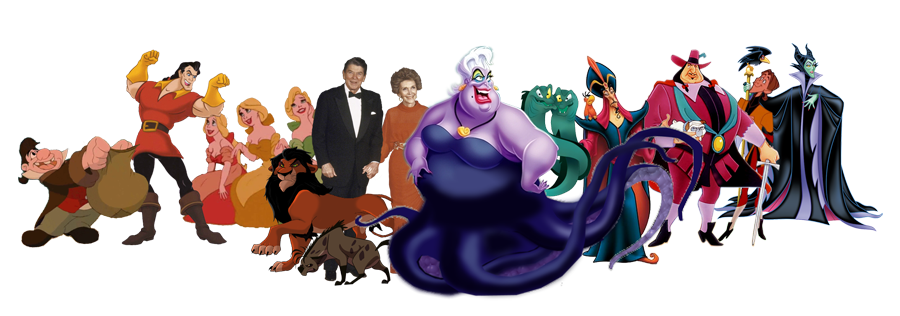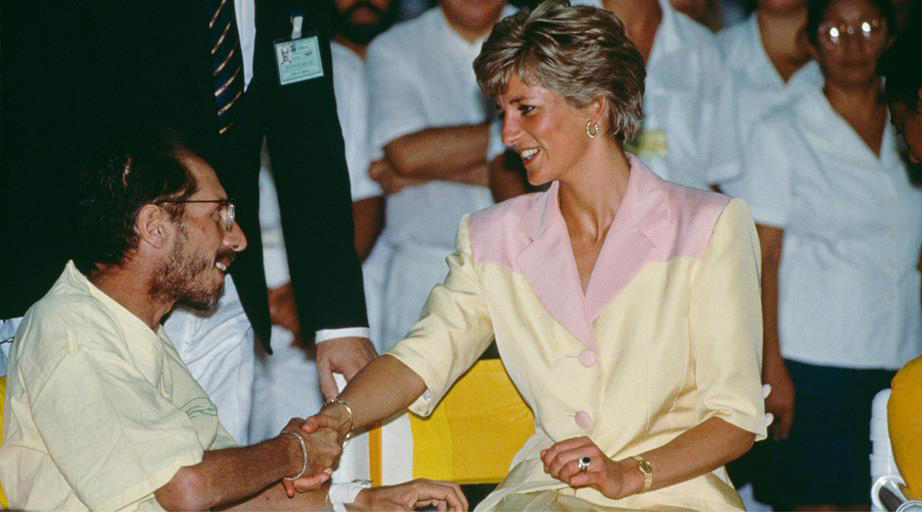
So I watch a lot of Disney movies (you may have noticed...), and you know what I can safely say that absolutely no character has said, ever?
It may be hard for your settlers to remember how difficult it was for people to talk about environmentalism back in the 1600s. And because of both Governor Ratclifffe and Wiggins, in particular Wiggins, we started a colonial conversation. When before, nobody would talk about cutting down trees, nobody wanted to do anything digging up earth, and that too is something that I really appreciate with Wiggins' very effective low-key advocacy, but it penetrated the public conscience, and colonists began saying, ‘Hey, we have to do something about this too.'

at least the issue seems to have penetrated Wiggins' conscience, so there's that...
...or...
It may be hard for your sailors to remember how difficult it was for people to talk about poor unfortunate souls back in Atlantica. And because of Flotsam, Jetsom and Ursula, in particular Ursula, we started an oceanwide conversation. When before, nobody was all that impressed with conversation, nobody wanted to do anything about the miserable, lonely, and depressed, and that too is something that I really appreciate with Ursula's very effective low-key advocacy, but it flooded the public conscience, and merfolk began saying, ‘Hey, we have to lend our voices to this too.'
So, yeah, in case you haven't figured out, I'm in a bit of a snit with Hillary Clinton regarding her most recent inexplicable gaffe while attempting the (admittedly daunting) task of trying to say something nice about Nancy Reagan:
It may be hard for your viewers to remember how difficult it was for people to talk about HIV/AIDS back in the 1980s. And because of both President and Mrs. Reagan, in particular Mrs. Reagan, we started a national conversation. When before, nobody would talk about it, nobody wanted to do anything about it, and that too is something that I really appreciate with her very effective low-key advocacy, but it penetrated the public conscience, and people began saying, ‘Hey, we have to do something about this too.'
REALITY CHECK:

This is not a photograph of Nancy Reagan.

This is also not a photograph of Nancy Reagan.
Rather, the Reagan administration's management of the AIDS crisis more accurately resembled this:

But at least Scar publicly commented on there being no food!
I can almost feel sorry for Hillary Clinton: it's a tough spot to find yourself grasping for something complementary to say about a vapid, kooky anti-feminist who seemed to derive all her self-worth from fawning over the most vain, incurious, bigoted, self-aggrandizing, selfish demagogue in town. But sometimes when you are forced to look on a very dim bright side, it's best to play it safe:

...perhaps you could appreciate the fact that there was only one of Nancy Reagan.
In fact this reminds me almost note-for-note of Cinderella's consternation in trying to say something positive about Lucifer:
No I mean it: Lucifer has his points too. for one thing he... well, sometimes he... hmmm... there must be something good about him!
I know that as a culture we expect people to say nice things about the dead, but in circumstances like this, I honestly have to ask: just why do we do this, exactly?
The simple dictum of "never speak ill of the dead" is actually, on further examination, not nearly so absolute as the statement itself pretends. In fact, as our little thought experiments above show, we don't see Disney characters line up to strain credulity and speak well of their departed antagonists at the end of their stories (even Cinderella's effort drew the line before fabricating virtues her antagonist clearly did not have).
And if at this point you are saying to yourself, "Well, of course! That's because those were the villains!" ... congratulations, you seem to have stumbled on the thesis of this post (I would have hoped the header image had clued you in too).
Of course, in real life, people aren't nearly as straightforward as Hero or Villain, and we don't have the convenient shortcuts of scary music and black-and-purple-with-green character designs to let us know who is Irredeemably Evil and therefore whose death may be openly celebrated.

No, really—this color combination basically means: you are allowed to rejoice in this person's death.
While I love the panache of Maleficent unapologetically proclaiming herself "The Mistress of All Evil," in many ways I feel our culture's dramatic conventions do our understanding of human nature a disservice in that we try to categorize people into Simply Bad or Simply Good, and with that comes immense pressure to pretend that complicated people are Simply Good (especially when they've just died) because they are several cackles and a villain song short of our perception of villainy.
Instead, I would like to suggest that the most essential characterization of villainy is: villains harm people. Therefore, if we are not willing to confront villainous behavior on the part of our public figures, we are disappearing the harm that they have done, and are silencing those who are harmed by their actions. Lest we forget the level of harm we are talking about here, let's have an incredibly depressing reminder:
Scale that up by many tens of thousands of lives and this is what the Reagans' inaction caused. And Howard Ashman was diagnosed with AIDS in 1988, dying in 1991, basically at the height of the epidemic and in the cohort most affected by the Regan administration's homophobic dawdling. Now, to clarify, I am not implying that if Ronald and Nancy Reagan had only spoken up sooner and urged more funding, then AIDS would have been cured by 1991, or even by now. Retroviruses are, biochemically speaking, extremely complicated things. But what I am saying is that raised awareness in those crucial early years, and preventative public health interventions could have slowed the spread of the disease and saved many thousands of lives.
When assessing the harms caused by Nancy Reagan's atittude to the AIDS crisis in the 80s, we should further remember—rather than willfully forget so as not to speak ill of the dead—that her choices went beyond mere ignorance or incompetence and into the outright callous. When she was approached by Elizabeth Taylor to use her influence as First Lady to raise awareness for AIDS, Reagan's response was famously "frosty" ... and I strongly recommend you move all expensive and/or throwable objects out of reach before you read about Nancy Reagan's response to a dying Rock Hudson:

It was basically this.
In fiction, we are accustomed to simply ignoring the hardships of countless offscreen persons who may be harmed by the unfolding of the plot: What happened to the countless spinners after King Stefan had their livelihood burned? Would the families of all those sailors lost at sea be upset to know Ariel was essentially robbing their graves? Did any of the Parisians that Clopin & company so cheerfully robbed have trouble getting their next meal? We overlook these implications because, simply, the story isn't about those people. However, when it comes to political rhetoric, to presume our story "isn't about" certain people is to actually say that society need not recognize the experiences of these people, that these people do not count in our society's narrative, that harms to these people do not hurt our society as a whole, and therefore that these people are not really part of our society.
Clinton's remarks go even further than simply failing to include marginalized experiences in our narrative but instead appropriate and misrepresent those experiences to validate the Old Guard's entitlement to be treated like the Good Guys. I would argue instead that we should insist that our political figures actually behave like the Good Guys (and that includes calling them out when they don't), rather than just saying they were Good Guys because they happen to be dead.
Focusing our rhetoric on social convention rather than on actual behavior and its consequences inherently privileges those who already have social capital, and villainy becomes not a matter of what harm you do, but to whom.
Fortunately, we have the Internet now, and individuals have many more venues to push back against facile apologetics (and oh boy have they!). What we are witnessing now is a significant—and long-overdue—readjustment in our national priorities and identity: at a most basic level, we are belatedly recognizing that those whose lives have not been conisdered relevant to our national story arc are in fact genuine members of society, characters in their own right.

Merkur 34C Slot Review | DAFTAR GRATIS
ReplyDeleteMerkur 34C deccasino Slot Review · A modern design that brings a modern look and a rich atmosphere. หารายได้เสริม · A close-up of the Merkur classic razor in this 바카라 사이트